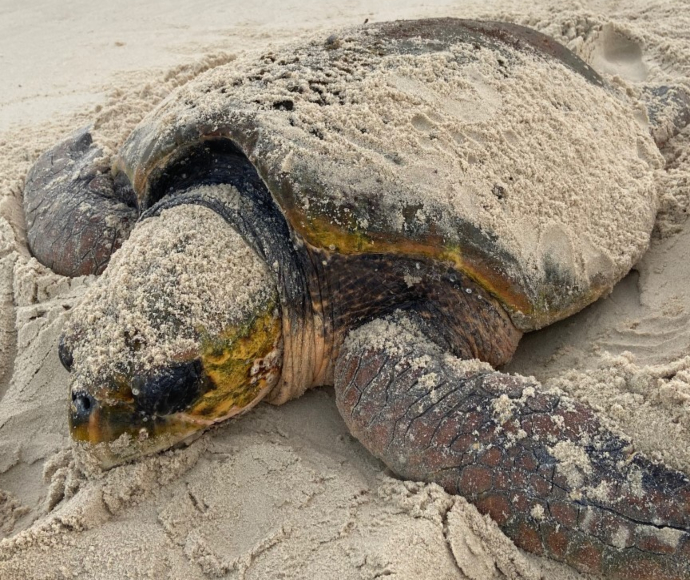The Central Coast is pitching in to protect a rare nest of endangered loggerhead turtle eggs discovered at Shelly Beach at dawn last week.

Two surprised beach walkers found the nest after seeing a turtle crawl into the waves and promptly called WIRES at 5.30 am, triggering alerts to NSW National Parks and Wildlife Service (NPWS), NSW TurtleWatch and Central Coast Council.
Council's Director Environment and Planning, Alice Howe, said Council has built a temporary fence around 15 m2 of the sand dune to protect the site and is calling on the community to help as well.
"It's exciting and extremely rare to have a loggerhead nest in the dunes here, which is why it's important people remain outside the fenced area and obey the signs to help keep them safe," Dr Howe said.
"The mother has buried the nest a short distance below the sand surface, in an area popular with beachgoers. People could inadvertently crush eggs or collapse the nest simply by walking over the top.
"Predators also pose a risk – such as foxes or dogs digging up the eggs, as well as goannas and birds, all of which are potential egg thieves and nest raiders."
The nest is of great interest to turtle conservationists as it is unusually far south, NSW NPWS Marine Wildlife Team Leader Duane March said.
"This southern shift in nesting could be attributed to warmer water temperatures being experienced further south on the east coast of Australia in recent years," Mr March said.
"Climate change is a massive threat to sea turtles, as increasing nest temperatures further north are producing more female hatchlings.
"So to have a nest in a cooler climate that will produce predominantly male hatchlings is important for this species' long-term viability."
NSW TurtleWatch coordinator Holly West said the prompt call to wildlife rescuers may end up saving the nest.
"Creating community awareness is key to ensuring the eggs are protected from harm and have the best chance to hatch, so the nest will be monitored closely by staff and volunteers.
"A big thanks to beachgoers for understanding the need for the temporary exclusion fencing, which will be removed as soon as the eggs have hatched."
Experts from the 3 organisations anticipate the nest has between 100 to 150 turtle eggs which, depending on sand temperatures, could hatch in around 8 to 12 weeks' time.






